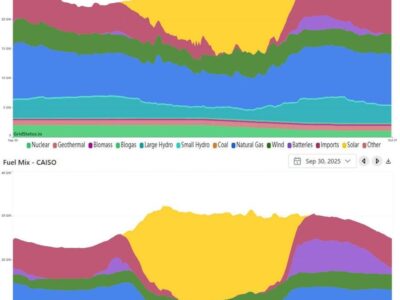When Do Economic Incentives Modify Behavior?

The Journal of Economic Perpspectives ought to be on any environmental law professor’s reading list — or really, anyone interested in environmental policy. Thanks in no small part to the editorial wizardry of Managing Editor Timothy Taylor, it performs its mission — to “fill a gap between the general interest press and most other academic economics journals” — with astonishing success. A typical issue will have several articles at the highest level of discussion, but usually lacking what my friend and colleague Stephen Bainbridge incisively calls the “recreational mathematics” of academic economists.
The most recent issue is no exception, and contains a piece written by Uri Gneezy, Stephan Meier, and Pedro Rey-Biel of particular import to climate policy. The article is entitled, “When and Why Incentives (Don’t) Work to Modify Behavior.”
[W]e discuss how extrinsic incentives may come into conflict with other motivations. For example, monetary incentives from principals may change how tasks are perceived by agents, with negative effects on behavior. In other cases, incentives might have the desired effects in the short term, but they still weaken intrinsic motivations. To put it in concrete terms, an incentive for a child to learn to read might achieve that goal in the short term, but then be counterproductive as an incentive for students to enjoy reading and seek it out over their lifetimes. Next we examine the research literature on three important examples in which monetary incentives have been used in a nonemployment context to foster the desired behavior: education; increasing contributions to public goods; and helping people change their lifestyles, particularly with regard to smoking and exercise. The conclusion sums up some lessons on when extrinsic incentives are more or less likely to alter such behaviors in the desired directions.
It should be fairly obvious of the implications of this for climate policy. Both carbon taxes and cap-and-trade schemes rely on increased prices to reduce demand for carbon. But perhaps certain kinds of prosocial behavior rely on people deriving utility from developing their self-image as environmentalists. If that is true, then perhaps people might buy fewer hybrid vehicles because such a purchase will no longer be seen as “green” but rather just cash-maximizing. Gneezy, Meier, and Rey-Biel suggest that invisible carbon charges (e.g. an energy-saving water heater) might be the best way to go, then, because no one is gaining or losing image from engaging in green behavior in the first place. This obviously applies to whole series of other environmental policy issues as well.
In any event, as they say, read the whole thing, whether you buy the argument or not (and I’m not sure I do). And look for JEP when it comes out every quarter. IIRC, the American Economic Association, which publishes the journal, makes it available for free for those with an .edu e-mail address.






Reader Comments